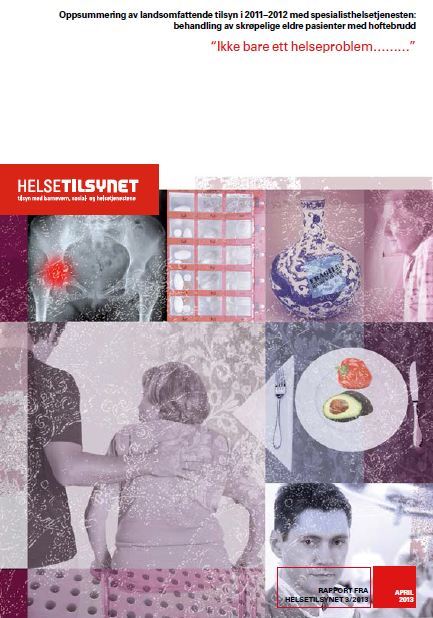“Not just one health problem………” Summary of countrywide supervision 2011-2012 elderly people treated for fracture of the hip
Summary of Report of the Norwegian Board of Health Supervision 3/2013

Fracture of the hip is a serious health problem for elderly people. This has serious consequences such as pain and discomfort, but can also lead to lost function, reduced life expectancy, increased need for help, and increased need for care in an institution.
As part of countrywide supervision 2011–2012, the Offices of the County Govenors assessed the patient records of frail elderly people who had been treated for fracture of the hip. In many cases, inadequate documentation of the patients’ use of medication, their nutritional status, and treatment of delirium (states of acute confusion) was found.
When inadequate documentation was found, we asked the health trusts to investigate whether this indicated that their practice was also inadequate and in breach of the legislation. After they had followed this up, we found that inadequate documentation generally indicated inadequate practice. Nearly all the health trusts saw the need for changes in order to have a broader approach to this patient group.
There is reason to question whether this also applies to other groups of elderly patients. The health trusts should investigate this, and implement appropriate measures to ensure that the approach to treatment of these patients is comprehensive. The issues related to use of medication, nutritional status and delirium are relevant not only for frail elderly patients with fracture of the hip, but for all frail elderly patients.